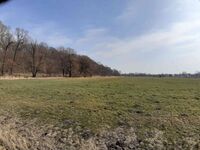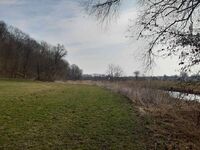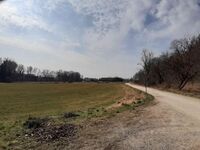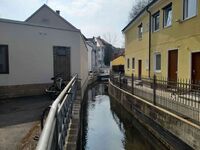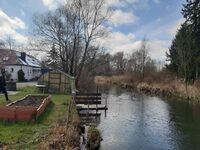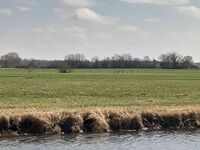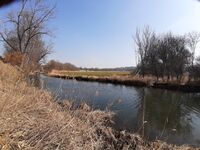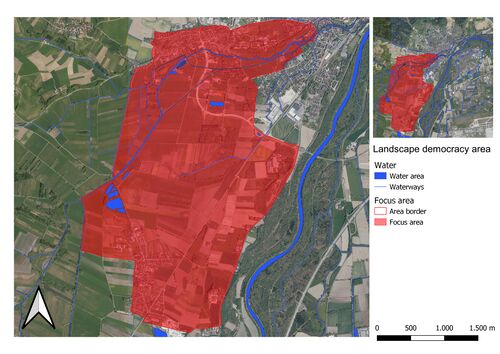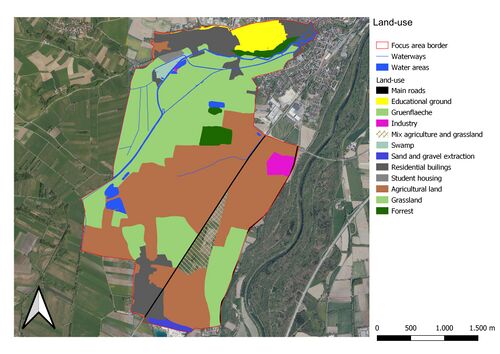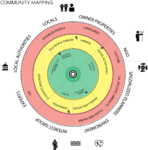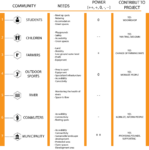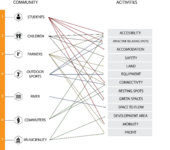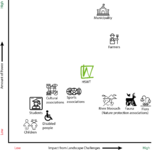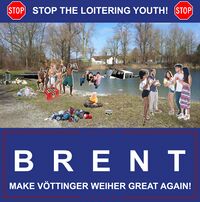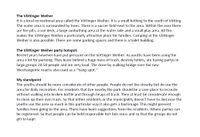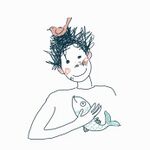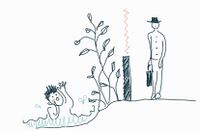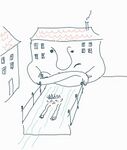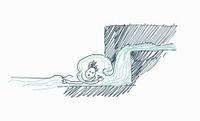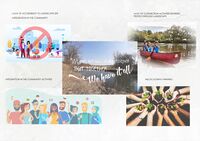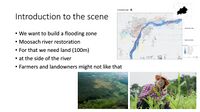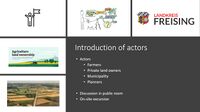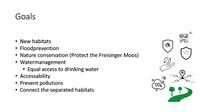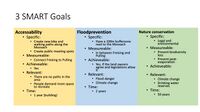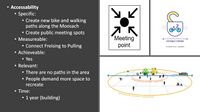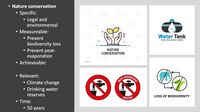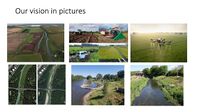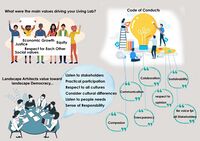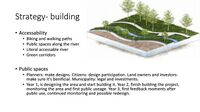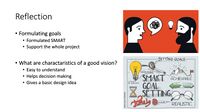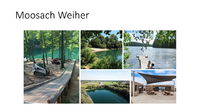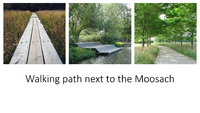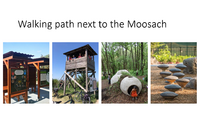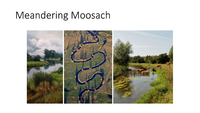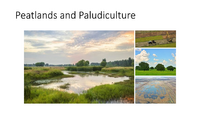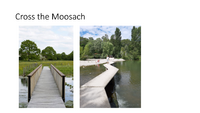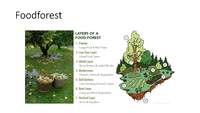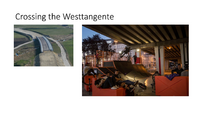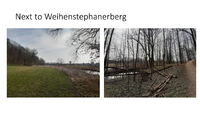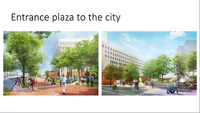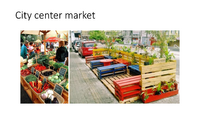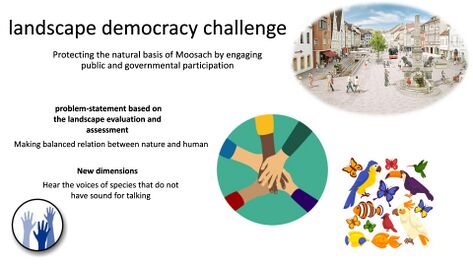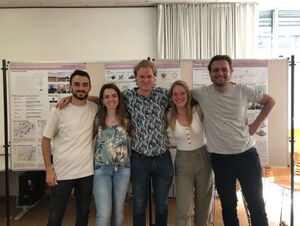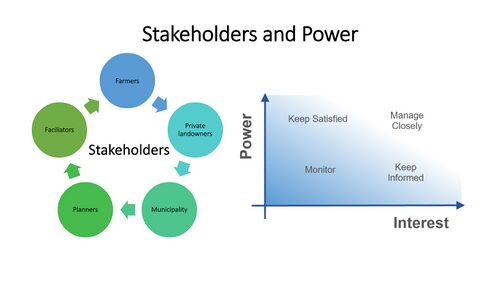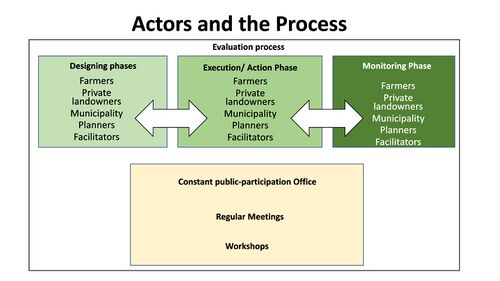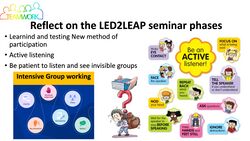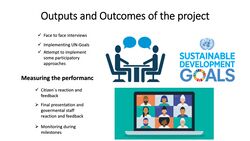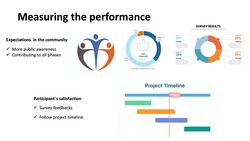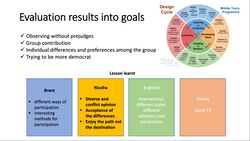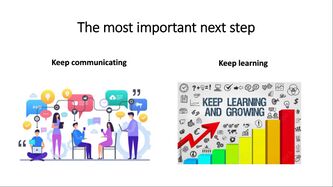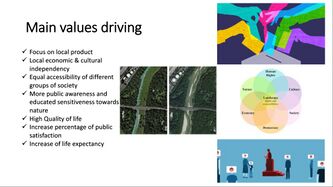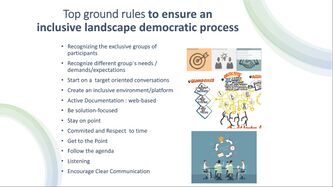Freising-Moosach Landscape Democracy 2022 Team 2: Difference between revisions
Brent.brug (talk | contribs) |
Brent.brug (talk | contribs) |
||
| (5 intermediate revisions by the same user not shown) | |||
| Line 156: | Line 156: | ||
= Phase D: Collaborative Design, Transformation and Planning= | = Phase D: Collaborative Design, Transformation and Planning= | ||
==Your Prototyping Action== | ==Your Prototyping Action== | ||
Our prototype focusses on creating a connection between the people of Freising and the food they eat. By creating a new walking path from the city of Freising to the small town of Pulling. This path will come across multiple points, where interesting things can be seen. It goes through agricultural area, so that the people can see where their food is grown. | Our prototype focusses on creating a connection between the people of Freising and the food they eat. By creating a new walking path from the city of Freising to the small town of Pulling. This path will come across multiple points, where interesting things can be seen. It goes through agricultural area, so that the people can see where their food is grown. | ||
==The Evolution of Your Prototyping Action== | ==The Evolution of Your Prototyping Action== | ||
The setup for this phase had already started in Phase C. Where we focussed on creating a nice walking route. This point would become our starting point for the creation of the whole route from the city centre of Freising to the small town of Pulling. | |||
== The Plan Behind Your Prototyping Action== | == The Plan Behind Your Prototyping Action== | ||
| Line 176: | Line 177: | ||
==The Realization of Your Prototyping Action== | ==The Realization of Your Prototyping Action== | ||
https://youtu.be/PZA2Ts5j9Sw | |||
The video showing the route created for Landscape Democracy phase D. | |||
==Reflect on Your Prototyping Action== | ==Reflect on Your Prototyping Action== | ||
By making the video we found out that there is a possibility for creating a road. However the scale of our prototype is very big. So trying to implement it in reality was not possible. However using the video format is a nice way of showing a prototype. Especially since it also included pictures that showed how it would eventually look like. This is a good way to show people what you want to make. Showing this to locals is also a plus, since they are familiar with the project area and can therefor envision the interventions in the landscape more easily. | |||
= Phase E: Collaborative Evaluation and Future Agendas= | |||
==Collaborative Evaluation and Landscape Democracy Reflection== | |||
[[File:Slide 1 phase E.jpg|none|thumb|473x473px]] | |||
The main landscape democracy challenge we identified. | |||
==The Actors in your Collaborative Evaluation== | |||
[[File:Moosach nixies team.jpg|none|thumb]] | |||
The team are the actors for this collaborative Evaluation. | |||
Moosach Nixies consists of: | |||
* Vulnet Abazi | |||
* Boglárka Bartus | |||
* Brent van der Brug | |||
* Dino Jozic (did not have to follow Landscape Democracy) | |||
* Niusha Vedadi Moghadam | |||
<gallery widths="500" heights="350"> | |||
File:Slide 2 phase E.jpg|The stakeholders | |||
File:Slide 3 phase E.jpg|The power dynamic | |||
</gallery>The stakeholders of the Landscape democracy project area and their power dynamic. | |||
==Reflection on the Online Seminar== | ==Reflection on the Online Seminar== | ||
<gallery widths="250" heights="250"> | |||
File:Slide 4 phase E.jpg | |||
File:Slide 5 phase E.jpg | |||
File:Slide 6 phase E.jpg | |||
File:Slide 7 phase E.jpg | |||
</gallery> | |||
==Reflection on your Living Lab Process== | ==Reflection on your Living Lab Process== | ||
== | <gallery widths="333" heights="333"> | ||
File:Slide 8 phase E.jpg | |||
File:Slide 9 phase E.jpg | |||
File:Slide 10 phase E.jpg | |||
</gallery> | |||
Latest revision as of 08:39, 18 July 2022
>>>back to working groups overview
For help with editing this Wiki page use this link.
For more details on assignments and key readings please use this link.
| Area | Freisinger Moos | |
| Place | Freising | |
| Country | Deutschland | |
| Topics | Landscape Democracy | |
| Author(s) | Vulnet Abazi, Boglárka Bartus, Brent van der Brug, Dino Jozic and Niusha Vedadi Moghadam | |
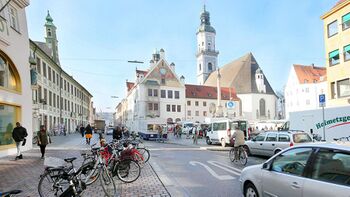
| ||
Landscape Democracy Rationale
- Why do you think this case is relevant? What is your hypothesis considering the landscape challenges?
- The Freisinger Moos area is located to the south-west of Freising. It is an area with both nature and agriculture.
- Landscape challenges:
- CO₂ neutral future
- Flood prevention
- Future self-sufficient community
- Urban growth
- Biotope enrichment
- How do we give nature and the river a voice?
Location and Scope
- You can edit this map with the map editor
Phase A: Mapping Your Community
Welcome to Your Community and Their Landscape
Groups of Actors and Stakeholders in Your Community
- There are a lot of groups within our focus area. These groups can be seen in the community grouping circle. This also shows how close these are connected with the river Moosach.
- From the community grouping circle we picked a few groups to focus on.
Relationships Between Your Actors and Groups
- The groups we would like to work with, each have their own needs. The first image shows how the needs of these groups intersect with eachother.
- The power mapping graph shows the amount of power each group from within the focus area has. Besides this it also shows how much effect the landscape challenges have on these groups.
Summary of Your Learnings from the Transnational Discussion Panel
Theory Reflection
- For Landscape Democracy to achieve its full potential, education must be re-envisioned to offer future design and planning professionals to test their skills in recognizing challenges, opportunities and ethically and responsibly intervene to shape a socially sustainable.
- Didactic Formats fostering the development of competencies and transformative learning. The experimental character of projects allows for making mistakes. (within the protected space of the university) as an essential part in the process of learning.
- For Landscape Democracy to achieve its full potential, education must be re-envisioned to offer future design and planning professionals to test their skills in recognizing challenges, opportunities and ethically and responsibly intervene to shape a socially sustainable.
References
Landscape Education for Democracy – Volume 10
Pledge for a Transformative Science, 2.2.2
Phase B: Democratic Landscape Analysis and Assessment
Niusha Vedadi Moghadam
Part B - Hear the voice of nature
Brent van der Brug, The Vötting Weiher Party hotspot
Bartus Boglárka, Change our relationship to water
Vulnet Abazi, Landscape connects us all
Phase C: Collaborative Visioning and Goal Setting
The Actors in Your Story of Visioning
The Story of Visioning
Reflect on Your Story of Visioning
Phase D: Collaborative Design, Transformation and Planning
Your Prototyping Action
Our prototype focusses on creating a connection between the people of Freising and the food they eat. By creating a new walking path from the city of Freising to the small town of Pulling. This path will come across multiple points, where interesting things can be seen. It goes through agricultural area, so that the people can see where their food is grown.
The Evolution of Your Prototyping Action
The setup for this phase had already started in Phase C. Where we focussed on creating a nice walking route. This point would become our starting point for the creation of the whole route from the city centre of Freising to the small town of Pulling.
The Plan Behind Your Prototyping Action
The points we come across during our newly created route.
The Realization of Your Prototyping Action
The video showing the route created for Landscape Democracy phase D.
Reflect on Your Prototyping Action
By making the video we found out that there is a possibility for creating a road. However the scale of our prototype is very big. So trying to implement it in reality was not possible. However using the video format is a nice way of showing a prototype. Especially since it also included pictures that showed how it would eventually look like. This is a good way to show people what you want to make. Showing this to locals is also a plus, since they are familiar with the project area and can therefor envision the interventions in the landscape more easily.
Phase E: Collaborative Evaluation and Future Agendas
Collaborative Evaluation and Landscape Democracy Reflection
The main landscape democracy challenge we identified.
The Actors in your Collaborative Evaluation
The team are the actors for this collaborative Evaluation.
Moosach Nixies consists of:
- Vulnet Abazi
- Boglárka Bartus
- Brent van der Brug
- Dino Jozic (did not have to follow Landscape Democracy)
- Niusha Vedadi Moghadam
The stakeholders of the Landscape democracy project area and their power dynamic.
